Related Content
Content
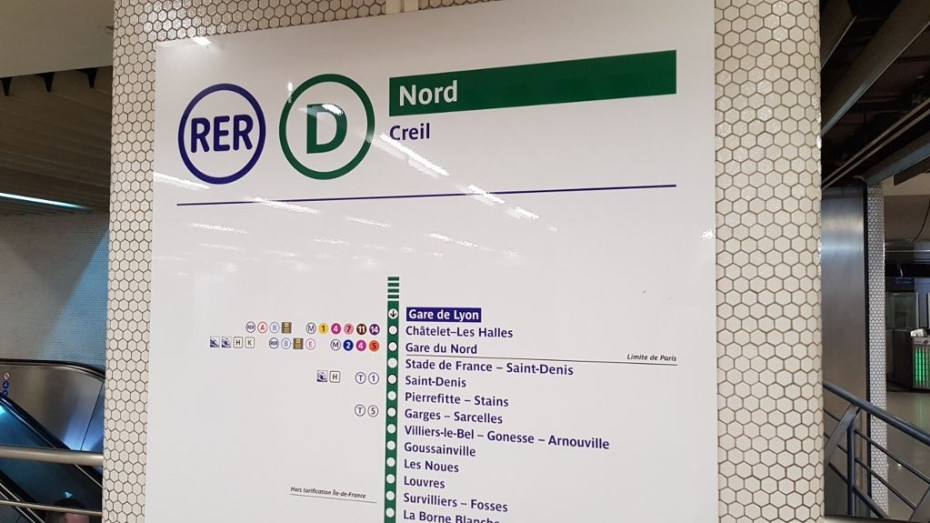
Share
If you want to opt to make the transfer between the Gare De Lyon and the Gare Du Nord by public transport, taking the RER train is the best option.
The four positives are:
(1) It’s comparatively fast - it’s a two station hop on Ligne D (Sud) - the green line, so you can be the concourse at Gare Du Nord, within 25 mins of entering the RER station at the Gare De Lyon.
(2)The line D platforms at the Gare Du Nord and Gare De Lyon stations have both been brightened up; and numerous staff can usually be found on the platforms at Gare Du Nord, so the station has lost much of what had been a somewhat intimidating atmosphere.
(3) It's cheap, a single central zone metro ticket can also be used on the RER.
(4) It's generally reliable, you won’t have to wait more than 12 minutes for a train and delays are very rare.
Not so great:
- The air-conditioning on the RER trains can be temperamental, so on a hot day, particularly if you are managing heavy luggage, it can be a tad uncomfortable
- Also the end-to-end the journey can be more confusing than you might imagine, hence the info below.
1. Accessing the RER:
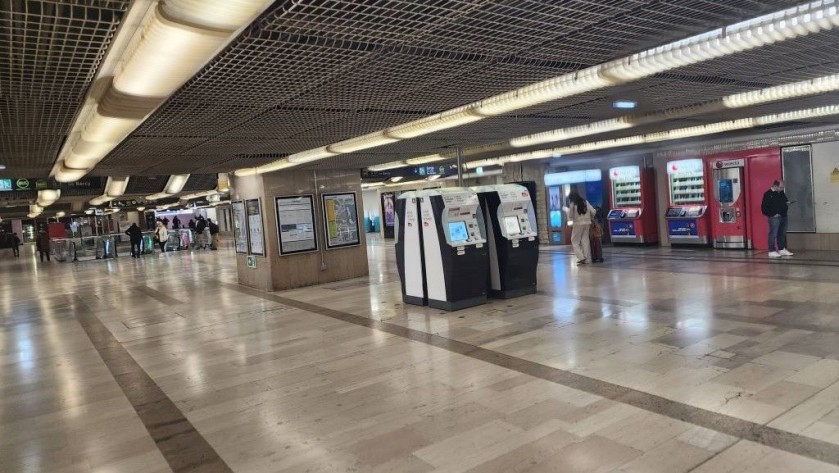
’You will need to access RER Line D by passing through the Hall 3 at Gare De Lyon.
It is at at lower level to where the TGV and Lyria trains arrive, but how you access Hall 3 will depend on which part of the station your train has arrived at.
The RER station is at one end of the Hall 3 concourse.
(This view above of Hall 3 was taken from the entrance to the RER station, looking in the OPPOSITE direction towards Hall 2).
If your TGV or Lyria train has arrived at voies (tracks/platforms) 5 -23:
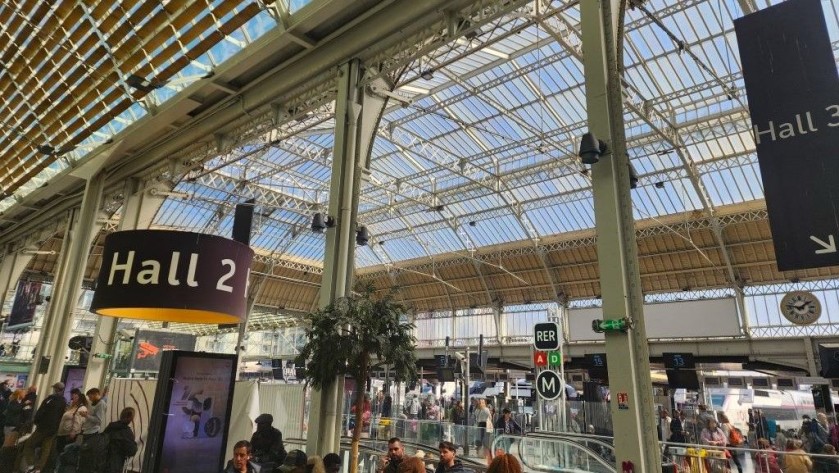
The only exit is to walk ahead towards the front of the train.
You will then be on the Hall 2 concourse, the access, pictured above, down into Hall 3 will be in the middle of the concourse.
Be prepared to have to navigate through the crowds of people waiting for trains.
The entrance to the RER will then be at the far end of Hall 3.
If your TGV or Lyria train has arrived at voies (tracks/platforms) A - N:

Don’t walk ahead to the far end of the voie/platform at the front of the train.
Instead use the stairs and escalators you will see along the voie/platform, they will have the RER symbol on the signs above them and they lead down into Hall 3.
One of the sets of stairs leading down to Hall 3 can be seen in this view above; there also escalators available.
If you’re travelling in the front 3 – 4 coaches of the train, these stairs/escalators to the RER, leading down to Hall 3, will be behind you when you step off the train
Don’t be tempted to head to the Hall 1 concourse, which you will see ahead of you, the easiest access to the RER will be via Hall 3.
When you’re in Hall 3 you will have to turn to the left or right depending which set of stairs and escalators you will have used.
What you need to do is head in the opposite direction to the atrium which connects this Hall 3 to Hall 2.
2. Entering the RER station:
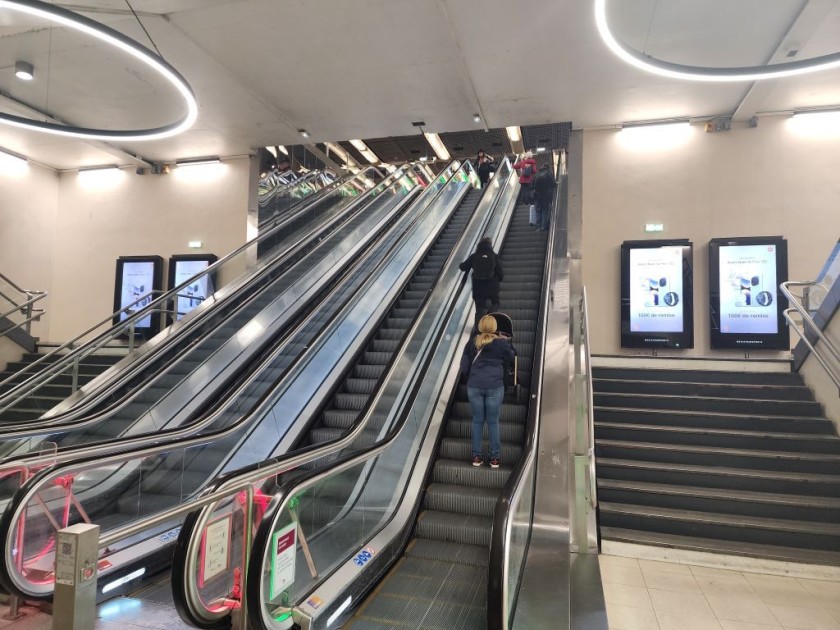
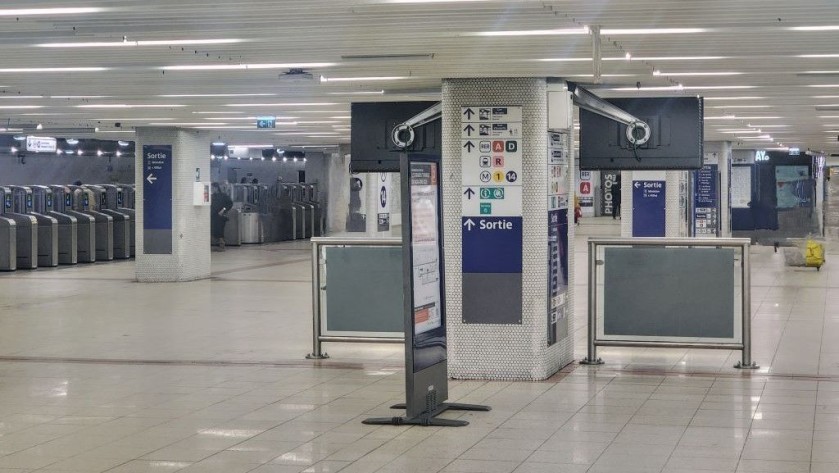
When you reach the end of Hall 3, there are escalators and elevators which lead down into the RER station - the image above left is taken from the foot of this escalator, looking in the opposite direction up to Hall 3.
3. Buying a ticket(s):
Your end-2-end train journey ticket will not include the RER, so you will need to buy a Metro-Train-RER 'ticket' which costs €2.50.
However Paris has pretty much transitioned to a Pay As You Go system named Navigo for its public transport network.
The RER ticket(s) for the journey on to the Gare Du Nord have to be loaded on to a physical / plastic Navigo Card, or purchased on either one of two apps - the Île-de-France Mobilités app, or the Bonjour RATP app.
One card per person, or one app per person.
If you opt to use a card you can tap it on the ticket gates, but if you opt to use an app, you tap the mobile device on which the app is installed, on the ticket gates.
If you don't want to use an app (see below), a Navigo Easy card, which costs €2 is the best option for a journey from the Gare De Lyon Nord to the Gare Du Nord, because single journeys can be loaded on to it.
Though if you will be making a return journey which also involves a cross Paris transfer, you can buy two tickets / journeys and load them on to the card.
Some of the ticket machines at the Gare De Lyon will sell the Navigo Easy Cards + the journey(s) in one transaction, you pay and the machine will issue a card with the journey(s) loaded on to it.
Though some machines only allow pre-purchased Navgio Cards to be inserted and loaded.
Of if the staffed ticket counter is open (see below), you can obtain the Navigo Easy cards + the journeys in one transaction at the counter.
Once you have the Navigo Easy card keep it in your card holder and you can then use it when you return to Paris.
At some busy stations you may see staff on the concourse holding mini payment machines, and when you already have the Navigo card, you can approach these staff and add tickets / journeys to the card.
Using the apps
The big plus of the apps is that because you can use mobile banking to pay for transactions the ticket machines and counters at the stations can be avoided.
Post-purchase, you can tap your phone on the card readers on the ticket gates to open them.
Though you need an app / mobile device per person, you cannot purchase tickets / journeys for more than one individual within the app.
However, there are two apps:
1: The Bonjour RATP app keeps things simple and it's the best option if all you'll want to do is purchase the ticket for the RER journey to the Gare Du Nord
Because the advantage of using it is that you don't have to bother with the Navigo Cards / Passes, as you can buy a ticket(s) online and store them within the app.
Plus it's typically possible to make the purchase(s) in the app before you get to Paris.
2: - Using the Île-de-France Mobilités app - aka the Navigo Pass app
If you have a compatible iPhone or Apple Watch this app is built into the Apple Wallet
You can add it by tapping the Add (+) button in the Wallet app, selecting "Transit Card," and choosing "Navigo".
Though as explained in depth on this excellent guide, downloading the Île-de-France Mobilités app and setting it up for purchase is a multi-step process if you have an Android device - and the phone needs to be NFC compatible.
However, it seems as though you need to be in Paris before you can make any transactions / payments on the app.
So the best methodology seems to be (1) download/ open the app before you set off, then (2) buy the ticket(s) on the app when you get to Paris.
The key difference to the Bonjour Ratp is that you can use an Île-de-France Mobilités app to purchase a range of passes aka 'titles' in addition to the Zone 1-5 tickets.
So it can be particularly worth the bother if you know that you'll be likely to return to Paris for an extended stay.
The excellent parisbytrain website has all the info you will need about metro tickets.
Buying tickets in the station
The staffed ticket counter in the RER station at the Gare De Lyon is only open at certain times of the day, so to mitigate against this, multi-lingual staff can be assigned to ticket machines to ensure the correct ticket is purchased.
However, queues of more than 10 people per ticket machine can be typical!
Also if you have arrived at the Gare De Lyon and don't have a Navigo Card (see above), check that the machine will also issue the Navigo Cards before you join the queue.
The excellent parisbytrain website has all the info you will need about metro tickets.
4. To the train:
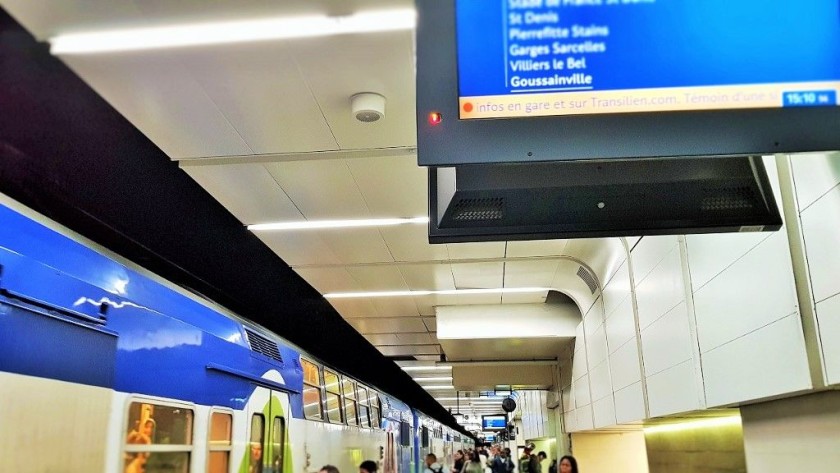
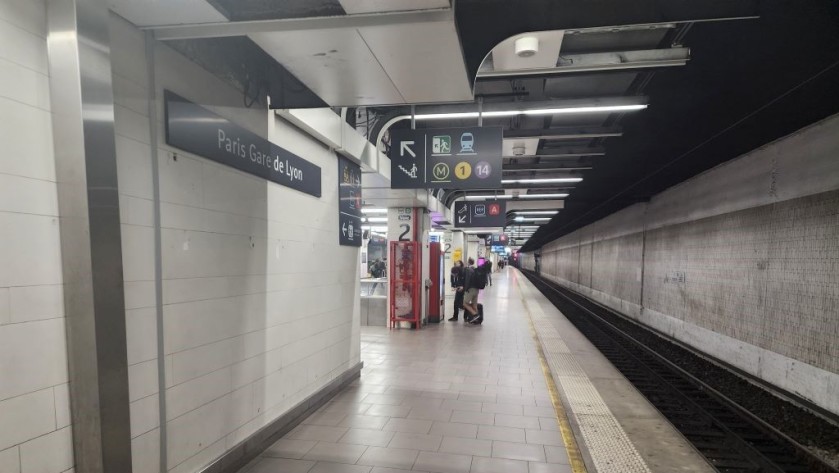
You need to take a Ligne D (Nord) train.
When you have descended to the platform remain in the area at the foot of the escalators/stairs.
It will be the most crowded part of the platform/voie, but you will then be able to board towards the rear of the train when it arrives; and this is the best option, as explained below.
ALL Line D trains heading north will be calling at Gare De Lyon - though check the departure indicator, as the next train can be departing from voie 1 or voie 2.
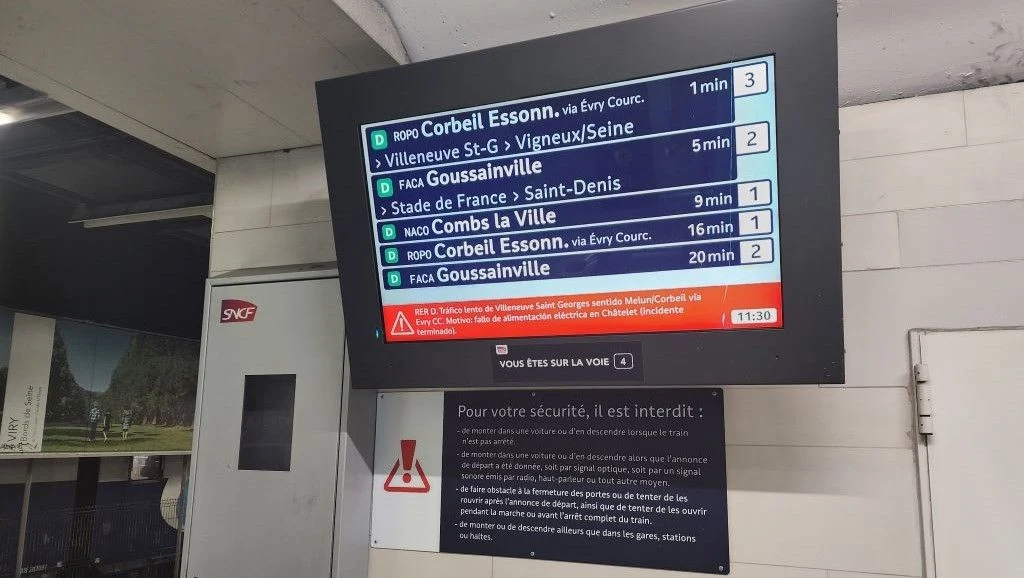
5. Boarding the RER:
The train will be double deck, but don’t bother with finding a seat.
It’s easier to wait by the doors as the travel time is only around 7–8 mins, though allow room for people to alight and board at the intermediate station, Châtelet – Les Halles.
6. Exiting the RER at the Gare du Nord:
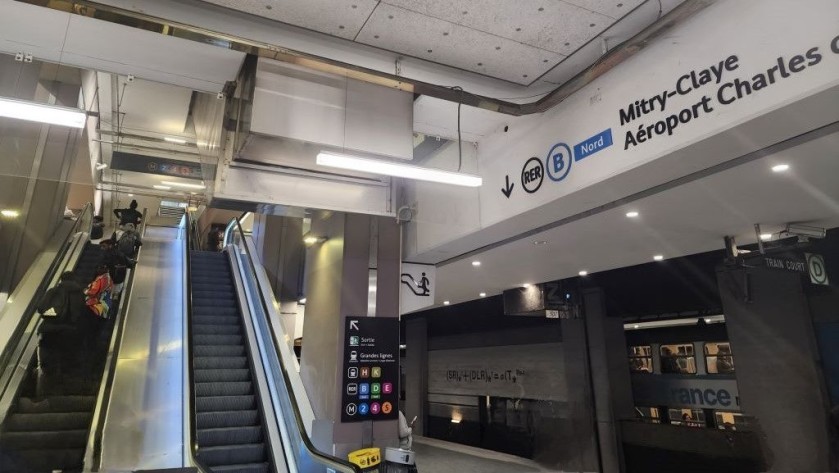
On arrival at Gare Du Nord there are multiple sets of escalators and lifts / elevators leading to the level above - you will find yourself in a mall.
Those located nearest to the rear of the train will have the quickest and least confusing access to the main line departure concourse.
7. Heading to your onward connection:
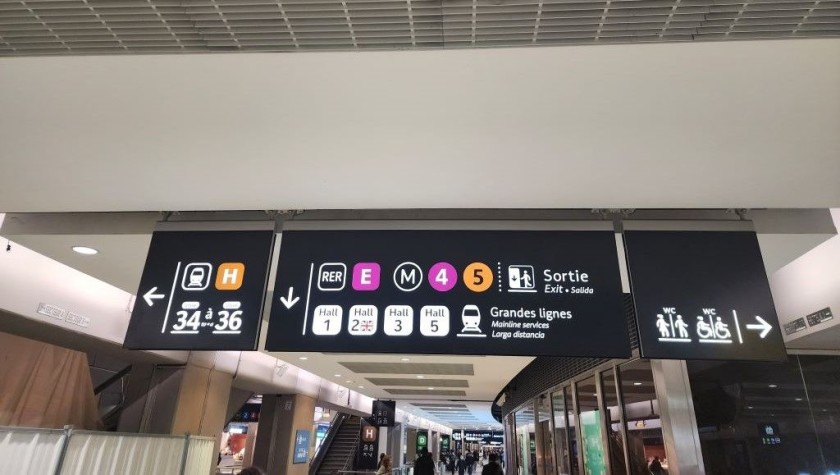
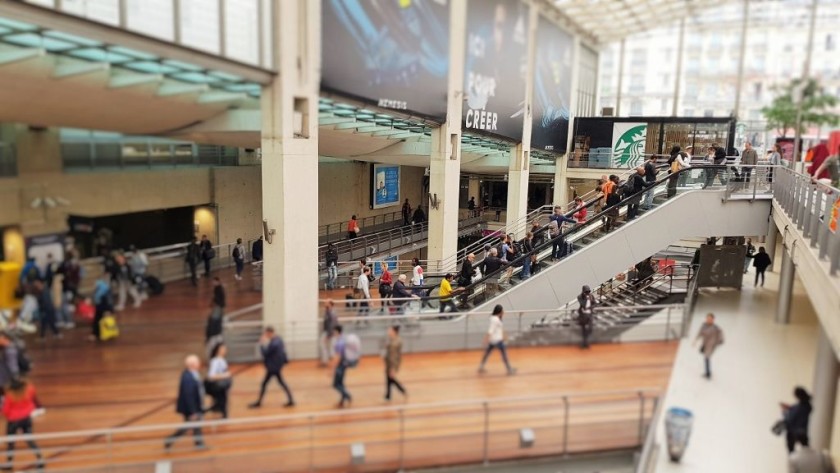
Follow the signs pointing to the 'Grande Lignes' trains.
You will exit from a passage way, which resembles a shopping mall, into an atrium from where you will see the main concourse at the Gare Du Nord above you.
If you have used the escalator which will be on the platform, which you will find towards the rear of the train, then when you have ascended you will see this atrium ahead of you.
In this view above right, the exit from the RER station is over to the left and the escalator in the middle of the picture is the main link up to the main departure concourse.
8. Up to the main concourse:
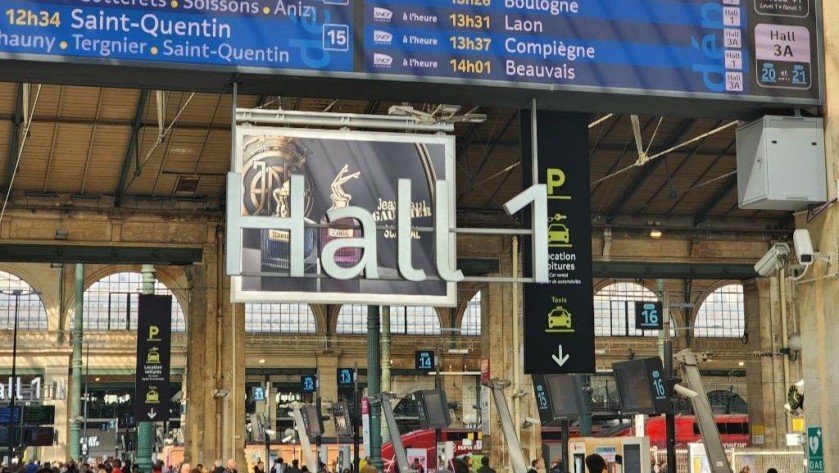
Take the escalators or lifts up to the main concourse in Hall 1, where the trains will be lined up at their respective voies/platforms over to the right.
9. To the Eurostar departures on to London:
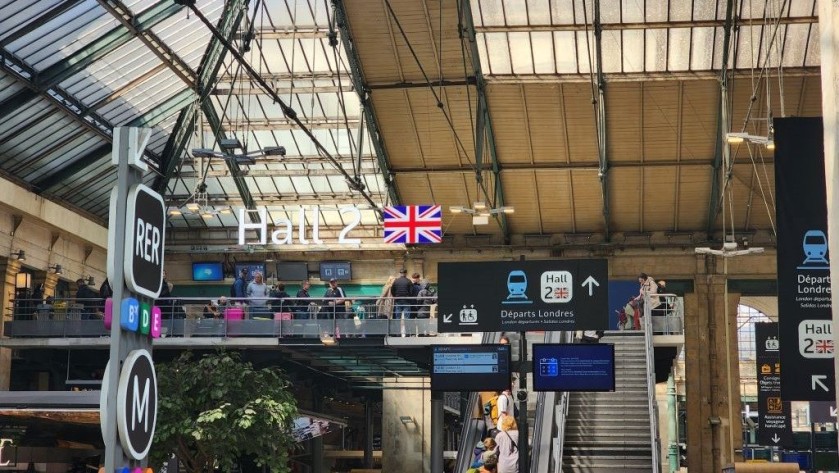
When you have ascended up to the main concourse, you will have to go up another level to access Eurostar departures in Hall 2– the ‘Hall du Londres’.
Eurostar is currently recommending Standard and Plus ticket holders should be at the Eurostar departure area 75 - 90 mins before departure; and that Business Premier ticket holders should be there 45-60 mins prior to departure.
The departure gates will close 30 mins prior to departure for Standard and Plus ticket holders; and 15 mins prior to departure for Business Premier ticket holders.
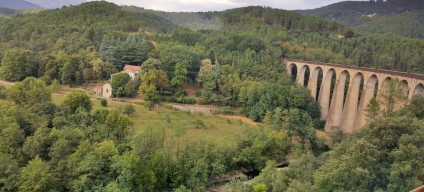

Please support ShowMeTheJourney
This second version of ShowMeTheJourney is exciting and new, so we are genuinely thrilled that you are here and reading this, but we also need your help.
We’re striving not to let anything get in the way of providing the most useful service possible, hence a facility has been set up with DonorBox which can be used to support the running costs and make improvements.
Instead of advertising or paywalls, your financial support will make a positive difference to delivering an enhanced service, as there’s a lot of ideas which we want to make happen.
So if you have found the info provided here to be useful, please go here to say thank you.
Look for a journey guide

Simon Harper
I wanted to share my passion for train travel and explain how anyone can take the fantastic journeys I have taken.

This is one of more than 100 train travel guides available on ShowMeTheJourney, which will make it easier to take the train journeys you want or need to make. As always, all images were captured on trips taken by ShowMeTheJourney.
This second version of ShowMeTheJourney is exciting and new, so we are genuinely thrilled that you are here and reading this, but we also need your help.
We’re striving not to let anything get in the way of providing the most useful service possible, hence a facility has been set up with DonorBox which can be used to support the running costs and make improvements.
Instead of advertising or paywalls, your financial support will make a positive difference to delivering an enhanced service, as there’s a lot of ideas which we want to make happen.
So if you have found the info provided here to be useful, please consider saying thank you.




